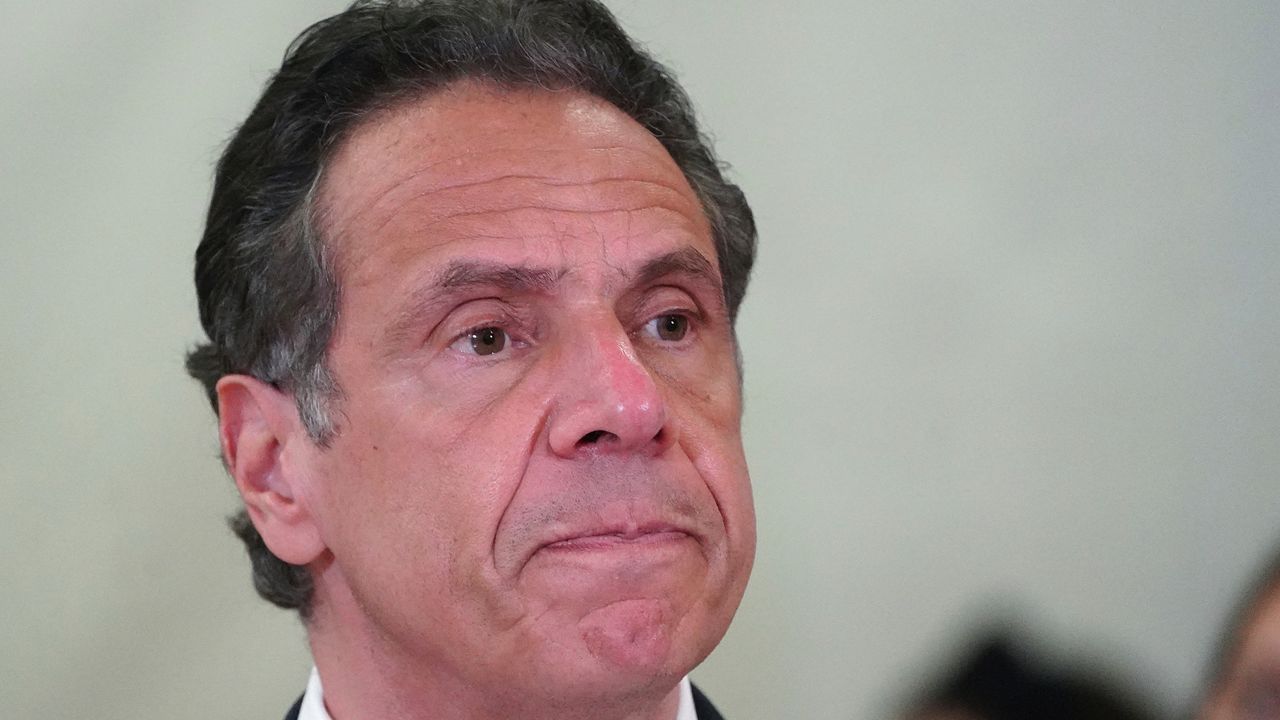The Democratic-led Assembly impeachment investigation of Gov. Andrew Cuomo is moving forward later today as the Judiciary Committee is scheduled to meet.
The meeting is an anticipated one given the growing number of controversies the panel is reviewing, ranging from allegations of sexual harassment leveled against the governor, reports of construction problems with the replacement of the Tappan Zee Bridge, an alleged under counting of where nursing home residents died during the pandemic and, more recently, the circumstances surrounding a reported $4 million book deal for the governor.
Cuomo and his administration in all instances have deneid any wrongdoing. The governor, citing the mulitple investigations that have been spawn, has said he's done commenting on them in public.
Here is what to watch for:
1. A timeline of the investigation
Assembly Speaker Carl Heastie has suggested the impeachment proceeding could take months, rather than weeeks, to complete. The purview of the Judiciary Committee's probe, along with the laundry list of issues facing Cuomo since the year began, is an apparently broad one for the chamber. Assembly Judiciary Committee Chairman Charles Lavine last week confirmed the committee has received 100 tips on a hotline it setup with its law firm that has been retained to provide logistical support for the review.
A drawn-out impeachment investigation comes as most voters polled continue to oppose Cuomo's resignation, a number that has not changed dramatically since last month. A growing number of voters surveyed by Siena College this week hold an unfavorable view of him, however. The governor's support with his base — registered Democrats and Black voters — has remained durable during the controversies.
2. Does the Assembly have witnesses?
Several women who have come forward with sexual harassment allegations have been publicly hesitant about speaking to the Judiciary Committee — citing concerns the investigation may be too aligned with the governor.
The impeachment investigation also comes as Attorney General Letitia James's office has launched a separate investigation into the harassment allegations, while the federal government is investigating the reporting of nursing home fatalities. The Assembly has vowed to conduct its investigation on a parallel track.
3. Ethics changes in Albany
Senate Majority Leader Andrea Stewart-Cousins did not rule out on Tuesday during a news conference the consideration of changes to the state's ethics laws before the legislative session concludes in June.
"We have spoken about ethics reform," she said during a virtual news conference.
Those changes could also include a proposed amendment to the state's constitution that would overhaul the functioning of the Joint Commission on Public Ethics, a much-malinged government watchdog panel that has been criticized for its lack of transparency and composition that can lead to little actual oversight of prominent officials.
The commission is little known outside of Albany, but plays a major role in policing ethics and lobbying in government. Its board is composed of appointees from the state Legislature and the governor. It's not clear if the commission is investigating any of the governor's controversies.
4. How will New Yorkers take this in?
There is still a pandemic to contend with and a vaccine to roll out to millions of New Yorkers. Joblessness has improved since the worst of the pandemic last spring, but the rate of more than 8% remains higher than it was in February in New York, and higher than the national average.
The nation is still processing the guilty verdict in the Derek Chauvin trial of the killing of George Floyd and what this will mean for the future of policing in America.
In other words, there's a lot going on in peoples' lives beyond what's happening in Albany and an impeachment investigation, albeit of a prominent one like Cuomo.
Still, the governor's team continues to bank on the notion New Yorkers are far more interested in having a job to go and have a shot in their arm to end the pandemic.




